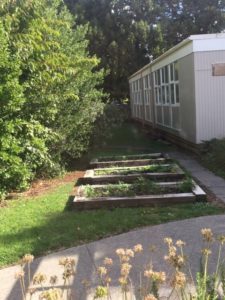In the third blog reflecting on the observations of our #JusticeSolutions tour of New Zealand, Jesuit Social Services’ General Manager – Justice Programs DANIEL CLEMENTS reflects on his visit to Kapiti Youth Services and the service’s person-centered, strength-based approach to the health and support needs of young people.
Day two of our #JusticeSolutions tour started with a short drive up the coast from Wellington to Paraparaumo to meet with staff from Kapiti Youth Services – a place-based primary health provider and support service working with young people aged 10-24 in the Kapiti coast community.

Kapita Youth Services.
CEO Raechel Osborne explained that the service has grown from its origins as a small primary health service to now offer a suite of programs in response to the health and support needs of young people in local communities.
However, what hasn’t changed is its core focus on the young person and a young person-centered, strength-based approach to the work.
Programs include medical and nursing services with clinical psychology, counselling, alcohol and drug services, social work, mentoring, parenting and peer support programs. The services are delivered by staff who share a common philosophy grounded in positive youth development and strengths based approaches, irrespective of their particular discipline or modality.
Rachael described a framework for their work that focuses on key domains, all part of what she referred to as “the universal truths for human wellbeing”. This philosophy is embedded in the way staff relate to young people, and guides the structure and organization of KYS services.
Central to Kapiti’s approach is the use of sophisticated outcome measurement and case management tools that enable them to track real time the efficacy of an intervention and their work, to be able to report back on outcomes and adapt interventions in response to the changing needs of a young person.
Their work has seen them expand to locate programs and staff in schools – cognizant that keeping children and young people in learning environments is critical to their long term wellbeing.
Through our tour of the bright and welcoming facilities we were welcomed by staff who enthusiastically spoke to the work they do and the young people who engage with their programs.


